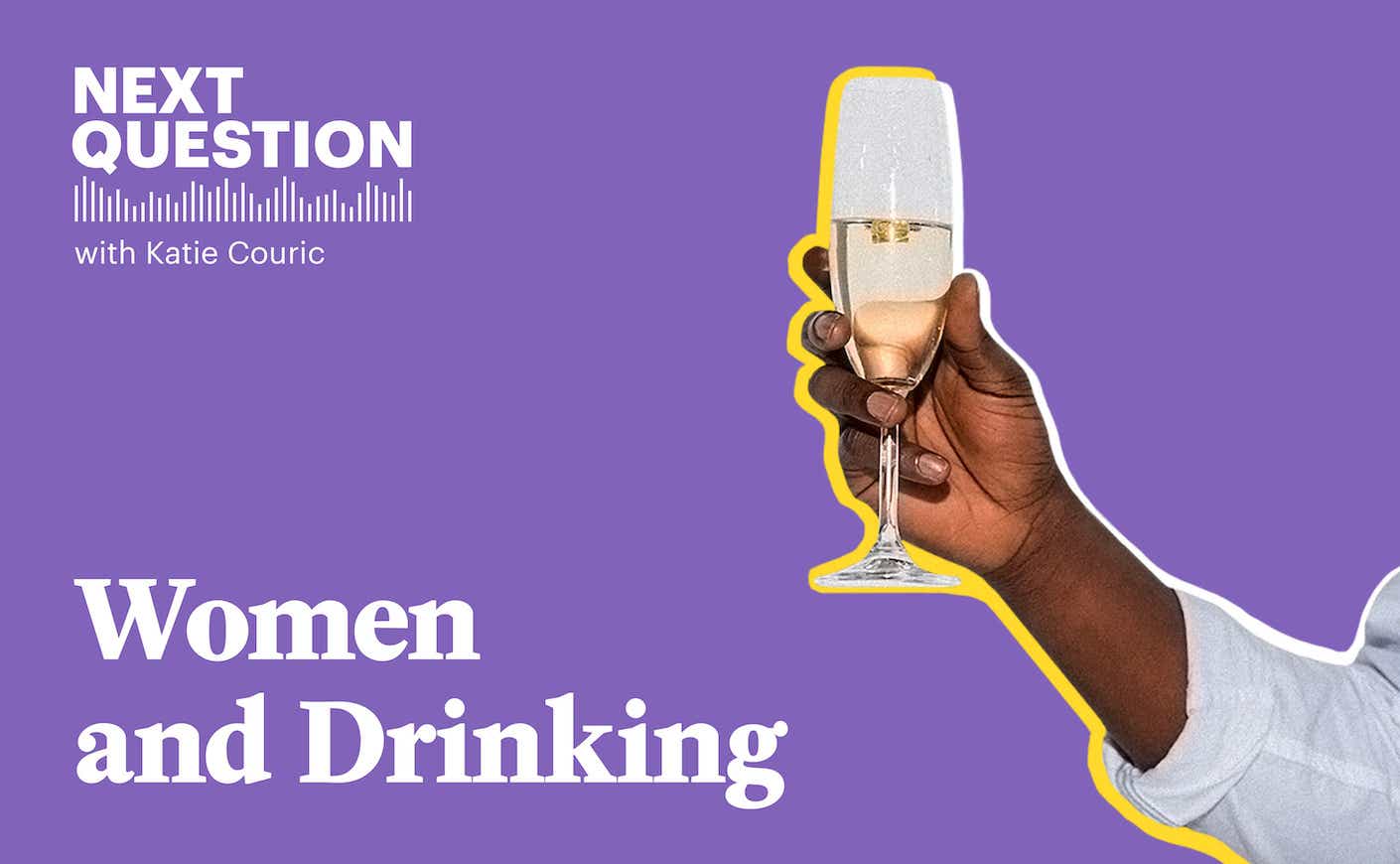It’s hard to see you have a problem when nobody around sees it. That was the experience of Khadi Oluwatoyin, the founder of Sober Black Girls Club.
Growing up, Oluwatoyin excelled academically, a point of pride for both Oluwatoyin and her parents. Her family didn’t drink or keep alcohol in the house, and Oluwatoyin distinctly remembers her first time drinking. Her father and brother had just dropped her off at college, and she decided to get drunk with some other students. “It was just amazing,” Oluwatoyin tells Katie in her latest episode of Next Question about women and alcohol. “There was a feeling of relief…to be out of my body, and not be so hyper-focused on being perfect.”
When Oluwatoyin got to law school, she was under immense pressure to perform academically. She tells Katie that as a Black woman, she felt a huge responsibility to pass the bar exam: “There was this idea that Black students don’t pass the bar on the first try…I didn’t want to be one of the Black students to fail.”
In order to keep up with her grueling study schedule, Oluwatoyin fell into a pattern of taking stimulants and depressants. “I started taking caffeine pills and drinking tons of coffee because I was studying for 12 hours a day,” she tells Katie. “But then I started to drink wine to fall asleep. I was just guzzling bottles and bottles.”
It wasn’t until a therapist suggested that Oluwatoyin might have an alcohol addiction that the thought even crossed her mind. “I had no idea that it was even scientifically possible for me to have an addiction to alcohol,” says Oluwatoyin. “I thought that addiction was white people’s problems.”
She goes on to explain, “I think that for a long time, everyone knew me as a very strong Black woman. I’m smart. I can support myself. I can support a community. And my drinking problem really developed into a personality that I thought at the time was just me. But it wasn’t the real me.”
Once she was able to recognize that she had a problem, Oluwatoyin decided to join a traditional 12-step recovery group. At her first meeting, she was the only Black person there, and she felt like her experience wasn’t understood by others in the program: “I couldn’t talk about anything that involved me being Black,” she says.
Next, Oluwatoyin turned to social media to try to find a sober community, but she found that the images she saw of sobriety were unrealistic. “It was like, ‘do yoga and drink coffee, and everything will be bright and pink and cheery.’ At that time, I was in such a dark place…it wasn’t enough to say that sobriety would be this amazing thing. I actually needed a professional to help me with the physical part of my addiction.”
During Oluwatoyin’s first stay in rehab, she was the only Black person there, which prompted her to start to unpack why she felt so reluctant to admit she had a problem in the first place. She tells Katie that as a Black woman, “We do feel that we have to overcompensate for negative stereotypes that Black people are lazy, or that we’re inferior in some way. So we just keep [addiction] a secret, because we feel like it will be used against all of us. I had never heard of a [Black] woman becoming addicted to anything. But it doesn’t mean that it wasn’t happening.”
After realizing that there was a lack of addiction support systems for Black women, Oluwatoyin decided to start Sober Black Girls Club, which she describes as “a collective that provides love, support, and resources to Black girls, women, femmes, and nonconforming folks living or considering beautiful sober lives.”
As she began speaking out about her experience, she found that her community had a hard time acknowledging her addiction. “A lot of my friends and my family are in denial,” Oluwatoyin explains. “Even today, they don’t talk about it.” Oluwatoyin believes this attitude is not unique to her family but is held by the Black community at large. “We just don’t talk about these things,” she tells Katie. “[The belief is that] as long as you are a doctor, or a nurse, or a lawyer, or you’re able to pay your bills, it’s OK to drink. Life is tough. We experience racism and discrimination daily. So if you want to have a drink, it’s understandable. That’s the attitude in the Black community.”
Oluwatoyin hopes that through Sober Black Girls Club, she can show other Black women facing alcohol addiction that they’re not alone. “We are finally saying enough is enough. We’re taking care of our mental health. We’re trying to understand why our parents didn’t take care of their mental health. Our meetings provide connection to all these points. It’s not enough to say I have a drinking problem, and I need to find myself. We are all very successful, and we want to know, why am I still miserable after [achieving] all these things?”
These are questions that Oluwatoyin is still grappling with. “I don’t want my worth to be based on [my achievements], “ she says. “I want to be OK with just being me.”
To hear more of Oluwatoyin’s conversation with Katie and Elizabeth Vargas, be sure to listen to Next Question.








